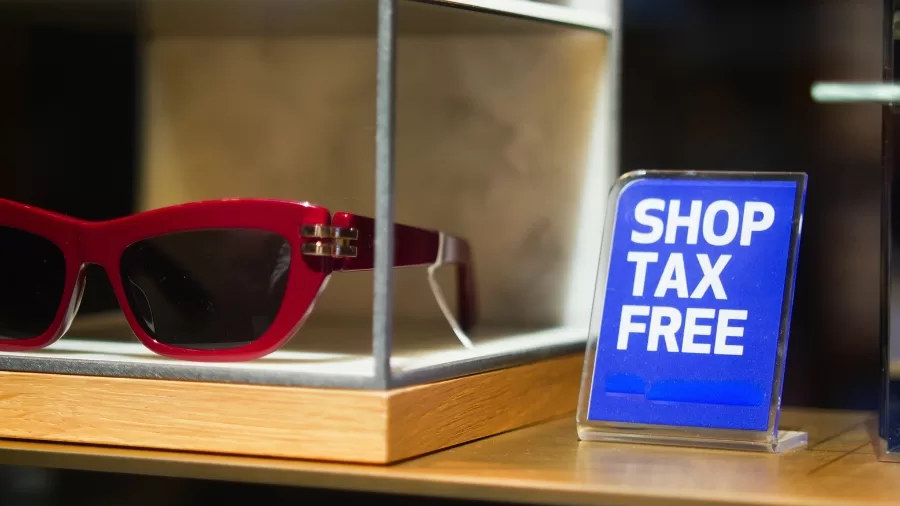Business
The Impact of Tax-Free Shopping Removal on UK Luxury Retail

- The loss of the UK’s VAT Retail Export Scheme following Brexit has considerably depressed overseas tourist sales. People have also been shopping in alternative tax-free shopping destinations that are taking shape across Europe.
- Despite certain brands having reached out to local clientele with their unique offerings, market movers continue insisting that the only way to improve the UK’s competitiveness is to bring back deficit-free tax shopping.
Due to the removal of the VAT Retail Export Scheme by the UK government in January 2021, global travelling shoppers have redefined their spending preferences and now perceive European countries more favourably than the UK. This has resulted in a noteworthy decrease in sales for British watch and jewellery brands compared to the same period last year as far as the international traveller is concerned.
Transformation in Tourists’ Spending Habits
Value-added taxes, or VAT, in the UK, migrated away from the EU through the previous taxation scheme based on grants to non-EU visitors. The British high street shrank, while the tax-free shopping options in Paris, Milan, and Geneva undertook massive growth as some of the cities are now more appealing to heavy-spending tourists. UK stores are experiencing difficulty in defending (maintaining) their share of the world’s highest-ranking market.
Jewellers, too, have spoken of the blow from abroad. Sales for overseas tourists from certain British luxury brands have had a major nosedive, with decreases of over 20% from the point of Britain’s pre-Brexit era. Luxury brands that depended very much on an international clientele have begun to feel their backs to the wall as these customers are willing to spend on tax-efficient locales.
Burning a Hole Through the UK Fashion Industry
Luxury retailers in the UK have taken hits due to fewer visitors and less spending. Watches of Switzerland company noted that the sales in question were very significantly reduced for international tourists—an increasing trend. Other brands have also remarked that this newly implemented “tourist tax” has virtually killed the competitive edge of companies, prompting many to critically reconsider their business approach. Though several undertakings have adapted to local markets through exclusive in-store experiences or limited-edition products, the hindering absence of supplementary tax-free shopping.
What the Economic Researchers Inflicted
Though the harm inflicted is pretty certain in the nests of individual stores, opposing sides of the argument show something better and worse. It was reported by a forecast conducted by the Centre for Economic and Business Research to sustain the reconditioning within the existing setup of the Tax-Free Shopping £11 billion could have been contributed to the GDP of the UK in 2023. No longer-term forecast of the Free Shopping Tax is conceivable. On the flip side of this, £540 million is expected to be the amount the government will save by the year 2025-2026, according to the OBR Planning. This very stark example of these counterclaims makes the more long-term discussion over the positives and negatives of this policy.
Survival Strategies
In response to the steady drop in footfall and business, many luxury brands in the UK are relying on alternative strategies. However, there are many ways to go about this. While one company might choose to step up marketing campaigns in major international markets, another might launch limited editions with a hint of local flavour. An example is that Breitling has come up with a few UK editions that it hopes will galvanise local buyers and inbound tourists interested in London.
In any case, any shopper with international status can buy items sans taxes in the UK in the hope of taking them back home. It has been almost unheard of up to now, due to how difficult it is to achieve, even more so than when having to buy something straight away in shops.
The Light at the End of the Tunnel?
No matter how difficult it may be, the industry connoisseurs still hold hope that the UK government might yet reconsider the abolition of tax-free shopping. Reinstating the scheme, many argue, will not only breathe life back into the luxury retail industry but also elevate Britain to a leading shopping destination for international tourists.
To be or not to be is the question: in this limbo, some luxury enterprises hang perilously close to extinction. Whether it is through innovative customer engagement or, indeed, a change in the policy strategy, this industry is caught off guard and has to recalibrate to still be posh among the wolf pack in the global resale crawl. “Tourist tax” still lingers, and British luxury retail has to tiptoe with more care than ever.

















































